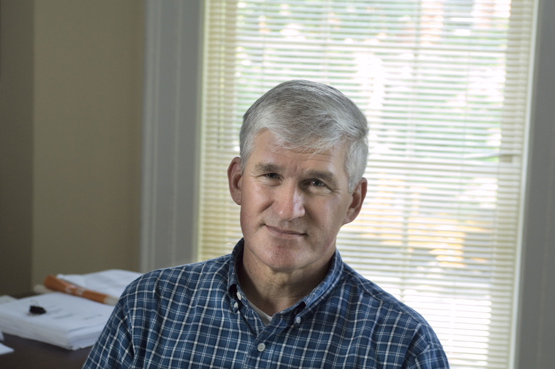The Enduring Relevance of Reinhold Niebuhr
Andrew Bacevich talks about the illusions of managing history

Click here to watch Andrew J. Bacevich on BUniverse.
Andrew J. Bacevich, a Boston University professor of history and international relations,delivers the 2007 University Lecture, Illusions of Managing History:The Enduring Relevance of Reinhold Niebuhr. A self-professed “groupie”of mid-20th-century cultural critic and Protestant theologianNiebuhr, Bacevich addresses the parallels between Niebuhr’s criticismsof Cold War–era America and his own analysis of the war in Iraq,ultimately calling for a “Niebuhrian revival” in American foreignpolicy.
Bacevich defines four of Niebuhr’s principaltheories — the “persistent sin” of American exceptionalism, theultimate indecipherability of history, the false allure of simpleforeign policy solutions, and the need to appreciate the limits ofAmerican power — that he believes can explain contemporary problems inAmerican foreign policy. Bacevich argues that today, as in Niebuhr’stime, American policy makers are so enamored of romanticized notionsof democracy and America’s moral authority that they fail to see theflaws of supposed cure-all policies like the war on terrorism in Iraq.The result, he says, is a mismanaged and infeasible policy in theMiddle East that has damaged America’s reputation and politicalstability there. Bacevich concludes by calling for areassessment of American values and culture, for as Bacevich warns andas Niebuhr himself once wrote, “Should the United States perish, theruthlessness of the foe would be only the secondary cause of thedisaster.”
Established in 1950 to honor faculty engaged inoutstanding research, the University Lecture is an opportunity for themembers of the BU community and the public to hear a distinguishedscholar discuss a topic of recognized excellence.
October 9, 2007, 6:30 p.m.
Tsai Performance Center
About the Speaker:Andrew J. Bacevich is a professor of international relations at BostonUniversity, where he directed the University’s Center for InternationalRelations from 1998 to 2005. Bacevich attended the U.S. MilitaryAcademy; he served in Vietnam from 1969 to 1970 and is a retired armycolonel. He earned a master’s and a doctorate in American diplomatichistory from Princeton University. Prior to arriving at BU in 1998, hetaught at West Point and Johns Hopkins University. The recipient ofnumerous awards and grants in his field, Bacevich has shared hisexpertise in American diplomacy, military history, and foreign policyas a fellow at Johns Hopkins University, Harvard University, and theCouncil on Foreign Relations in New York. He is the editor of The Long War: A New History of U.S. National Security Policy Since World War II and the author of several books, including American Empire: The Realities and Consequences of U.S. Diplomacy and The New American Militarism: How Americans Are Seduced by War. He has published numerous essays in publications such as Foreign Policy, The New Republic, and The Nation, and has written opinion pieces for the New York Times, the Boston Globe, the Washington Post, and many other newspapers.
Comments & Discussion
Boston University moderates comments to facilitate an informed, substantive, civil conversation. Abusive, profane, self-promotional, misleading, incoherent or off-topic comments will be rejected. Moderators are staffed during regular business hours (EST) and can only accept comments written in English. Statistics or facts must include a citation or a link to the citation.